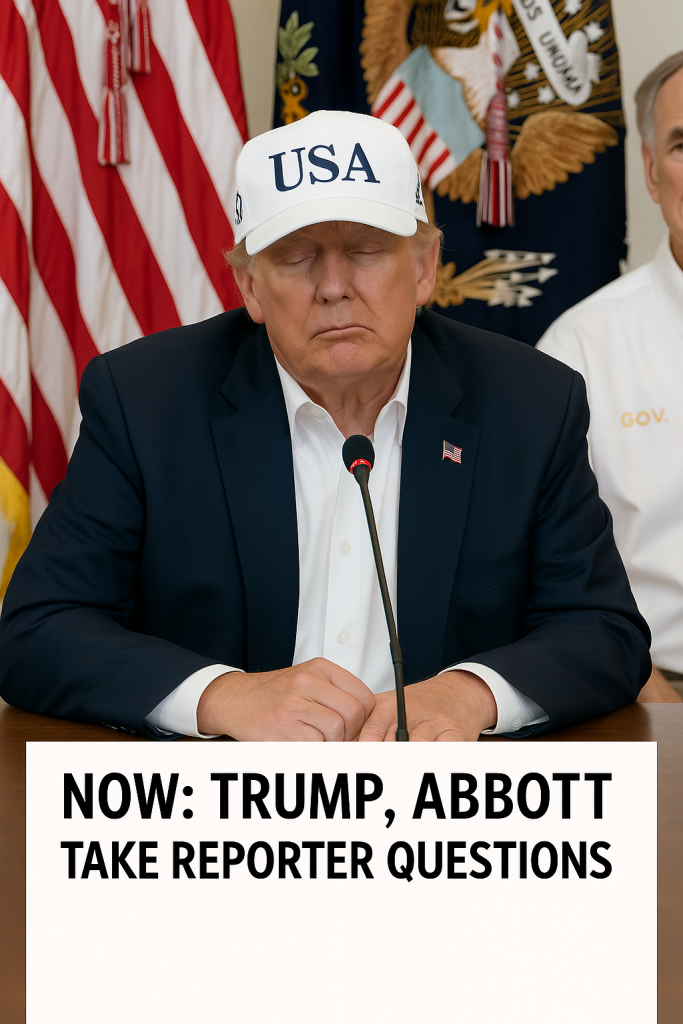During a recent press event addressing the devastating floods in Texas, former President Donald J. Trump sharply rebuked a reporter who questioned the timing of flood warnings issued prior to the disaster. The reporter asked why alerts “didn’t go out in time,” implying possible negligence or failure in communication from federal or state authorities. Trump’s response was swift and pointed, telling the reporter, “Only a bad person would ask a question like that, to be honest with you. I don’t know who you are…”
The interaction took place amid growing concern over the deadly floods, which have left numerous communities in Texas grappling with loss and recovery efforts. Authorities have been scrutinized for the effectiveness of their early warning systems, as some residents said they received alerts too late to take adequate precautions.
In the brief but tense exchange, Trump dismissed the reporter’s line of questioning as insensitive. His remarks instantly ignited debate on social media and in political circles, with supporters praising his defense of first responders and critics accusing him of deflecting accountability.
The question of whether the warnings were timely has become a flashpoint as emergency officials work to analyze the response timeline. State and local agencies typically coordinate with the National Weather Service to disseminate flood alerts, but unexpected weather patterns and infrastructure challenges can complicate rapid communication.
During the exchange, Trump appeared to emphasize the heroic efforts of emergency personnel battling the floods, implying that the focus should be on aid and recovery, rather than criticism. He also suggested that the reporter’s question undermined ongoing relief initiatives and caused unnecessary distress.
Experts note that flood warnings play a critical role in disaster preparedness, often saving lives by enabling timely evacuations. However, the complexity of flood forecasting can lead to imperfect prediction windows, especially with flash flooding where water levels rise quickly without much lead time.
As Texas continues to recover from the floods, discussions about improving early warning systems and emergency communication protocols are expected to intensify. Lawmakers and officials may seek to implement better technology and coordination methods to prevent similar delays in future crises.
For now, the exchange between Trump and the reporter serves as a stark reminder of the tension that can arise between public officials and the media during times of tragedy. It also reflects the broader national conversation about disaster management accountability and the challenges of delivering timely warnings in rapidly evolving situations.
While the debate over flood alert timing continues, Texas residents and emergency teams remain focused on rebuilding and supporting those affected by the recent floods — underscoring the urgent need for effective communication and swift action in the face of natural disasters.



